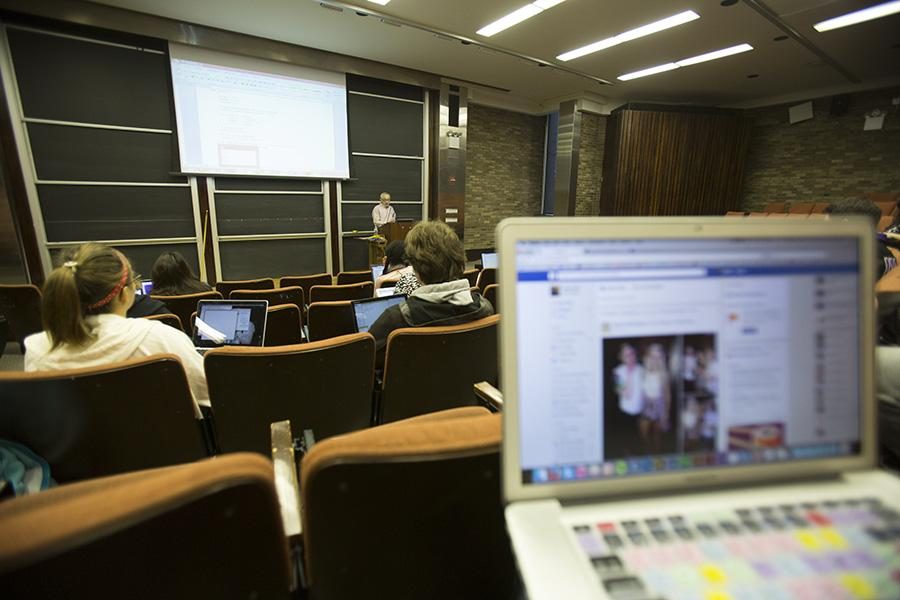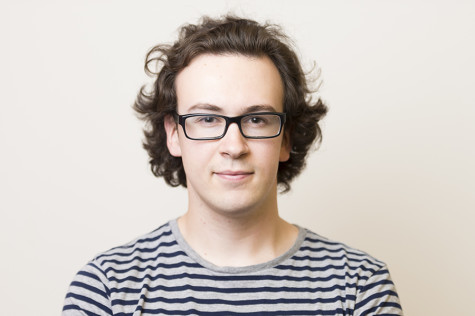Professors, students debate pulling plug on technology
November 3, 2014
With the proliferation of iPads, laptops and smartphones, a classroom without technology seems unimaginable. Many conflicting opinions are surfacing about whether the presence of this technology in the classroom has a positive or negative impact on student learning. The use of laptops in class has not only affected students, but the professors who have also noticed that laptops — with their tempting invitation to use social media, check emails and shop online — have become an increasing distraction to students.
Because of the possibility of students becoming sidetracked, CAS associate professor Clay Shirky decided to ban laptops in his Shanghai journalism class this semester.
“With no laptops, students are simultaneously more bored and more engaged,” Shirky said. “They are more bored because they cannot dip into WhatsApp and NYU Secrets every 10 minutes, and more engaged because the only means left to alleviate the boredom is to participate in class.”
LS sophomore Melissa Paris advocates for the use of pen and paper over laptops in class.
“I prefer taking notes by hand as opposed to typed on a laptop,” Paris said. “I find that when I write out my notes, I retain information better than when I type them and multitask.”
On the other side of the debate, Steinhardt professor Susan Murray, who teaches TV: History and Form, does not ban laptops in her classroom.
“I’ve considered banning laptops from my classes,” Murray said. “But I haven’t because I understand how useful they can be for taking thorough notes that can be used later to create certain types of chronologies and study guides, which is more difficult to do with handwritten notes.”
LS sophomore Annalise Goeke agrees that note-taking is much easier when laptops are allowed because of the speed of typing.
“I can’t write down what the professor says, only what they have on the board,” Goeke said. “With a computer, I can get down everything, just about word for word, too.”
Steinhardt professor Adam Buchwald offers an alternative, however, Buchwald discourages laptops in class, but he still allows students to use them as long as they sit in the back of the classroom to prevent them from distracting other peers. During the first week of his Science of Language class, he presented his students with research showing how laptops can inhibit learning for the students and their peers. From that point on, Buchwald allowed his students to decide for themselves if they wished to use laptops or not.
Despite the conflicting perspectives on laptops in classrooms, Shirky aims for a collaborative classroom environment, where technology is just another factor in the equation.
“I have come to think of the classroom as a collaboration between me and my students to make them smarter, and we are all in it together fighting off possible impediments to learning,” Shirky said.
A version of this article appeared in the Monday, Nov. 3 print edition. Email Lisa Azcona at [email protected].
























































































































































